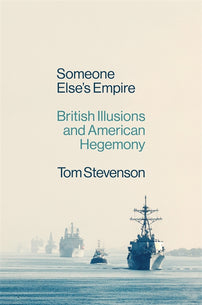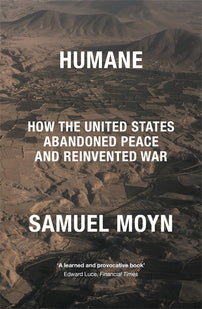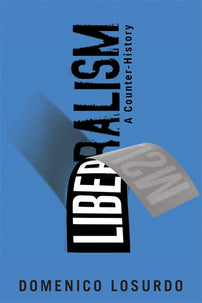We're So Glad It's You
As Adolph Reed wrote in 2014, liberals don't believe in politics anymore, only bearing witness to suffering. Here, former US diplomat Josef Burton asks what the moral universe of contemporary liberalism consists of when all hope for change is foreclosed.

Lawrence Wright, the Pulitzer Prize-winning journalist, stands in Hebron and watches as soldiers beat his source. In front of him is the Palestinian peace activist Issa Amro, thrown to the ground by Israeli soldiers, who then punch and kick him for having asked to speak to their commanding officer. Wright is there as a reporter, as a witness. He immediately begins filming, and then, right after the beating, tweets out the video, briefly describing what happened, adding only that “I can't stop thinking how dehumanizing the occupation is on the young soldiers charged with enforcing it.”
The online backlash was immediate: “you should see what the occupation does to Palestinians” wrote one academic. There was outrage. At the moment of violence, unbidden, an American liberal picked up the torch of moral concern for the oppressor. It was a passing thought, but that was exactly it: it was the first reaction that passes through his head when he sees somebody he knows being beaten.
This is not to suggest that Wright is somehow an advocate or apologist for the Israeli occupation. He is not. Wright has written well-researched books about the Middle East and North Africa, as well as a granular diplomatic history of the Israeli-Egyptian peace negotiations, all from a stolidly mainstream position that holds some level of blame for “both sides” and that hopes to see a two-state solution to the conflict. He knows what the political situation in Hebron is like for Palestinians. He is critical of Israeli excess and invested in the Palestinian perspective, which is why he is accompanying Issa Amro. It’s not even that Wright is wrong; from the very beginning, the anticolonial intellectual tradition has made it clear that carrying out colonial violence dehumanizes the colonizer, making them barbaric.
[book-strip index="1" style="buy"]
So what is happening here? Israeli scholar Gil Hochberg coined the term “shooting and crying” for the liberal self-pity which helps justify the occupation of Palestine; Israeli soldiers shoot and beat and kill, then after the fact are performatively remorseful about “what they had to do” in order clean their consciences and retroactively redeem the Israeli state as a liberal-democratic society whose soldiers and officials possess a conflicted but strong moral core. This shooting and crying is an act of self-pity. But the soldiers who beat Issa Amro didn’t care at all. There was no public regret, and they were given a perfunctory ten days of detention for use of excessive force. The Israeli soldiers did not performatively pity themselves, nor did they feel any need to. Wright did that for them. In one moment he revealed a central moral law of the twenty-first century liberal. This is not a hapless misunderstanding of the world but an attempt to impose a forceful ethical structure upon it.
***
In 2014 Adolph Reed Jr. wrote an essay in Harper’s in which he chronicled the long decline of American institutional liberalism. Surveying the wreckage of liberal projects like the Great Society and the New Deal, and the disintegration of any ability to steer American society in a proactive way, Reed saw that modern liberals don’t really believe in politics anymore. Instead, he said, what they believe in is bearing witness to suffering. Unable to change the world, Reed says, liberals confine themselves to gestures or comments on events in order to demonstrate symbolic solidarity.
Wright’s situation is much the same. The reasonable institutional Israel-Palestine peace process that he studied is moribund. All that remains is to stand around and film what happens next. To bear witness and allocate his concern among the involved parties.
More so than Reed ever argued, the liberal desire to bear witness is no mere helpless act of passivity. It is a violent imposition. Not a testament to an injustice, but an assertion of the right to see injustice in a way that fits into the moral universe of the observer. While Reed is right that liberals now only seek to bear witness, in bearing witness they seek to impose on the moral world what they can no longer impose on the real one: domination, order, coherence. They cannot change what governments and institutions and centers of power actually do but the liberal moral universe demands a balancing of accounts by the agents of that power: the bureaucrats, soldiers, spokespeople, and leaders.
***
Between 2017 and 2019, I worked as a diplomat at the US Embassy in Ankara, Turkey. My primary assignment was to administer the application of the Muslim Ban to Iranian and Syrian immigrants. I was deeply conflicted by my participation in an intentionally cruel policy. Every day people would sob in front of me, begging for the right to see their families as I flipped through piles of documents on the other side of a bulletproof window, their futures in my hands. I tried to sneak as many exceptions through the ban as I could, playing every bureaucratic game possible, but I couldn’t help wondering whether it would be better to simply quit, and in doing so remove my support for an explicitly bigoted system. I was not in any way conflicted about what I was doing, I knew it was irredeemably discriminatory and evil. What I didn’t know was whether it would be more effective to fight back, helping my applicants through, or simply to leave. It was a genuine dilemma with clear answers: leave or stay?
[book-strip index="2" style="buy"]
Those years were a dark period in my life. I saw myself in Frantz Fanon and Aimé Césaire’s description of white colonial officials, besuited behind a desk and dehumanized by their participation in a racist system. I did not know what to do. I turned to my mentors, family, and peers for advice, those who like the milieu in which I was raised were thoughtfully liberal, engaged with the world, horrified by the Trump administration’s immigration horrors. At bars, work lunches, and quiet family dinners I was perhaps too open, too pained. I would always find a reason to ask: what should I do?
Their answers were remarkably consistent and had little to do with my actual question. Nobody ever answered me directly, not really. Instead, they would say something else. An instinct similar to Wright's guided their concern: “I’m just so glad it's somebody like you in this position.” The sentiment was gratitude. Not for anything I did. I do not recall anyone ever asking about how effective I was, about the number of waivers I could secure or how robust my ability to subvert the Ban was. What they expressed was gratitude for my presence itself. We are lucky to have you. You care so much. You must be in such a difficult position. Gratitude for the virtue of my concern. As these conversations dragged on over the years, they became more and more repetitive. In response, I would become maudlin and say something to the effect of “I feel bad about the things I do” and people around me would respond with what boiled down to, “wow, you are such a good person.” This was gratitude for the fact of my moral self-flagellation. Some would say that it was my applicants who were lucky, would-be immigrants fortunate to have a sympathetic arbiter rustling through their visa applications, but most people I talked to would repeat the pronoun we. Us. The good people, the Resistance, the ones concerned about the state of the world were in luck because among the bureaucrats a good hearted one was made distraught by his actions –– which he never stopped.
At the time I was frustrated; I wanted answers, I wanted someone in my life to affirm the existence of right and wrong, that there was a clear path to take. But that is the issue at play here. The inability of my friends and family to provide guidance to me is connected to my search for some kind of instruction or plan. They are two sides of the same coin and are both reflections of the impossibility of a liberal response to injustice. Nobody I know attended the mass protests against the Muslim Ban. I didn’t either. The protests, although dramatic, did not result in its rejection. Its brief repeal was possible through the actions of a district court judge and a small number of activists and specialist lawyers. Despite what they did, the Ban was rapidly reinstated. It was simply not a policy that was responsive to mass public pressure - not that ongoing mass public pressure ever emerged.
[book-strip index="3" style="buy"]
Just as Lawrence Wright cannot meaningfully intervene to stop what is happening to Issa Amro, he must believe that something can result from his truth-telling, from his act of witness, that such an action must result in the peace process or justice system or something outside himself changing things because he can’t do anything more himself.
I think the reason that the liberals in my life felt relief at my anguish was because it resolved a contradiction in their moral universe. The system is heartless, and if changing the system through traditional channels of voting, protest, or journalism isn’t really possible anymore this undoes the liberal moral universe. But if people within the system feel bad then this gives at least a small amount of hope that institutions, somehow, will fix themselves. If I, to paraphrase Gil Hochberg, refuse visas and cry then a moral balance exists. Then bearing witness makes sense.
For liberals, my humanity was a legible reference point. But a world in which the suffering of the people on the other side of the interview window, the wall or the border didn’t happen is so incomprehensible that they have forgotten if they even want it. A world where the US immigration system doesn’t do this to people isn’t really possible. Lawrence Wright, watching, feels bad for the soldiers because, although he doesn't know it, he has already given up on Issa Amro.
[book-strip index="4" style="buy"]




